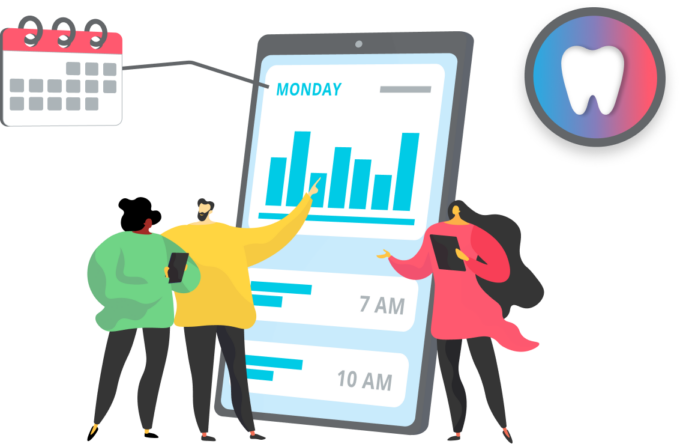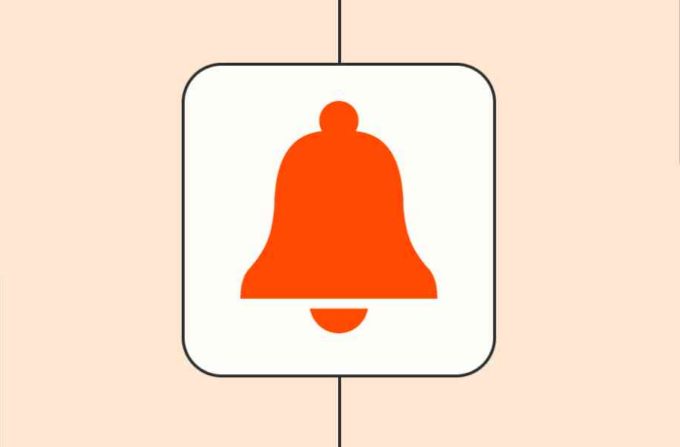In today’s fast-paced world, efficiency and time management are crucial for the success of any business, and dental practices are no exception.
Dental scheduling software is an innovative tool designed to help dental practices optimize their appointment scheduling process, enhance patient experience, and improve overall practice management.
This comprehensive guide will delve into the world of dental scheduling software, explaining what it is, its features, and the benefits it offers to dental professionals.
What is Dental Scheduling Software?

Dental scheduling software is a specialized application designed to manage appointments and optimize the scheduling process for dental practices.
It simplifies appointment booking, rescheduling, and cancellation, allowing both patients and dental staff to seamlessly coordinate their schedules.
By automating and streamlining the appointment management process, dental scheduling software not only saves time and effort but also reduces the risk of double bookings and appointment mix-ups.
Key Features of Dental Scheduling Software
- Appointment Management: Dental scheduling software allows dental practices to efficiently manage appointments by enabling patients to book, reschedule, or cancel appointments online. It also sends automated appointment reminders to patients, reducing the likelihood of no-shows and last-minute cancellations.
- Calendar Integration: Dental scheduling software integrates with popular calendar applications such as Google Calendar, iCal, and Outlook, ensuring that the entire team is updated with the latest appointment schedules. This integration facilitates better coordination and collaboration among dental staff members.
- Patient Information Management: Dental scheduling software also serves as a comprehensive patient information management system, storing patient data such as contact information, medical history, treatment plans, and insurance details. This centralized database enables dental professionals to easily access and update patient information, allowing for better patient care and streamlined workflows.
Source: resourcecenter.infinit-o.com - Online Patient Portal: An online patient portal is an essential feature of dental scheduling software. This portal allows patients to access their appointment schedules, view treatment plans, update personal information, and communicate with the dental practice. By providing patients with a convenient way to manage their dental care, the online patient portal enhances patient engagement and satisfaction.
- Automated Reminders and Notifications: Dental scheduling software sends automated reminders and notifications to patients via email, text message, or phone call, ensuring that they are aware of upcoming appointments. This feature helps reduce the number of no-shows and late cancellations, increasing practice efficiency and revenue.
- Customizable Scheduling Templates: Dental scheduling software offers customizable scheduling templates, allowing dental practices to design appointment schedules that best suit their needs. This feature enables practices to optimize their scheduling process by allocating appropriate time slots for different types of appointments, taking into account factors such as staff availability and required equipment.
- Reporting and Analytics: Dental scheduling software provides robust reporting and analytics capabilities, enabling dental practices to track key performance indicators (KPIs) such as appointment cancellation rates, patient wait times, and staff productivity. These insights help practices identify areas for improvement and make data-driven decisions to enhance practice performance.
Source: blog.hubspot.com - Multi-Location Support: For dental practices with multiple locations, dental scheduling software provides the ability to manage appointments across all locations from a centralized platform. This feature helps maintain consistency and ensures a smooth patient experience, regardless of the location they visit.
- Tele-dentistry Integration: As tele-dentistry gains popularity, dental scheduling software has adapted to include this new mode of patient care. By integrating with tele-dentistry platforms, dental scheduling software allows practices to offer virtual consultations, enabling patients to access dental care remotely. This feature not only expands the reach of dental practices but also provides convenience and flexibility to patients.
- Treatment Planning and Case Presentation: Some dental scheduling software includes treatment planning and case presentation tools that help dental professionals visually communicate proposed treatment plans to patients. These tools make it easier for patients to understand their treatment options, leading to increased case acceptance rates and better-informed patients.
- Billing and Insurance Integration: Dental scheduling software can integrate with billing and insurance systems, streamlining the financial aspects of dental practice management. This integration enables practices to verify insurance coverage, submit claims, and manage patient billing more efficiently, reducing administrative burdens and improving cash flow.
- Customizable Alerts and Task Management: Dental scheduling software can be configured to provide customizable alerts and reminders for tasks that require the attention of dental staff. This feature helps ensure that important tasks, such as following up on lab results or contacting patients with pending treatment plans, are not overlooked.
Source: zapier.com
Benefits of Dental Scheduling Software
- Enhanced Patient Experience: With features such as online booking, appointment reminders, and an online patient portal, dental scheduling software significantly improves the patient experience. These features provide patients with a convenient and accessible way to manage their dental care, increasing satisfaction and loyalty.
- Reduced No-Shows and Cancellations: Automated reminders and notifications help ensure that patients are aware of their upcoming appointments, reducing the likelihood of no-shows and last-minute cancellations. This results in better appointment utilization, increased revenue, and improved practice performance.
- Better Collaboration and Communication: Dental scheduling software facilitates seamless collaboration and communication among dental staff by integrating with popular calendar applications and providing real-time updates on appointment schedules. This feature ensures that the entire team is on the same page and enables a more coordinated approach to patient care.
- Data-Driven Decision Making: The reporting and analytics features of dental scheduling software empower dental practices to make informed decisions based on key performance indicators. These insights help practices identify areas for improvement and optimize their operations, leading to better patient care and increased profitability.
- Improved Efficiency: Dental scheduling software streamlines appointment management, saving time and effort for both dental staff and patients. By automating routine tasks and centralizing patient information, it allows dental professionals to focus on providing quality patient care.
- Scalability and Flexibility: Dental scheduling software can easily scale with the growth of a dental practice. As a practice expands, whether by adding more locations or increasing the number of dental professionals, the software can be adjusted to accommodate these changes, ensuring a seamless transition.
In summary, dental scheduling software is an invaluable tool that offers numerous benefits to dental practices.

By streamlining appointment management, improving patient experience, enhancing collaboration among dental staff, and providing actionable insights, dental scheduling software helps practices optimize their operations and achieve greater success.
As technology continues to advance, dental scheduling software is set to play an even more prominent role in shaping the future of dental practice management.














